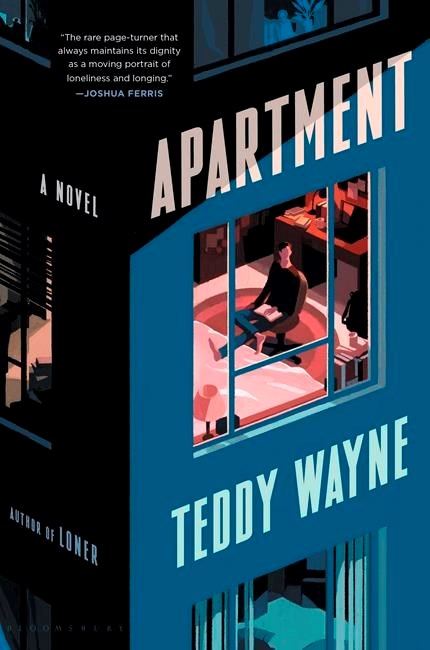“Apartment,” Bloomsbury, by Teddy Wayne
Teddy Wayne has written another campus novel.
Coming on the heels of his well-received “Loner” (2016), “Apartment” also serves as something of a parable for red state/blue state America. While the earlier book was set at Harvard, his latest takes place a couple hundred miles down the road in the MFA program of Columbia’s School of the Arts.
The time is the mid-1990s — at or near the start of campus identity politics — when not every bodega in New York had given way to a shiny bank and the dominant mode of technology was the floppy disk. The two main characters, both young white men and children of divorce, meet at the beginning of the semester in a writing workshop.
Billy, a working-class guy from a small Midwestern town, has to tend bar to afford his elite education, even with a full scholarship. Not only that, but he went to community college. The unnamed narrator, who hails from a wealthy Boston suburb, graduated from private, pricey New York University. Compounding his unearned privilege, he’s been illegally subletting his great-aunt’s rent-stabilized apartment while his emotionally unavailable father pays the bills.
One day, after Billy comes to his
Wayne does a good job of building suspense and complicating predictable narratives.
Will Billy, who seems affable enough at first, lauded by both his teachers and fellow students as a naturally gifted writer, turn out to be a con man or a cad? Is the narrator, who longs for a close friend and “the Hemingway-Fitzgerald complementary pairing I’d always thought necessary to one’s artistic development,” secretly desirous of something more carnal?
Neither man fits his stereotype entirely.
Billy makes culturally insensitive — many would call them homophobic — remarks, but he’s the one who cooks, cleans and sews. The narrator agonizes over almost everything, yet is less attentive to his mother than Billy over Thanksgiving weekend.
While most of the novel unfolds over a single academic year, the last few pages jump ahead in time to the 2016 election. By ending with Donald Trump’s victory speech invoking “the forgotten men and women of this country,” Wayne suggests that the apartment, with its warring roommates, is a stand-in for our country.
___
Online: https://twitter.com/annlevinnyc
Ann Levin, The Associated Press



